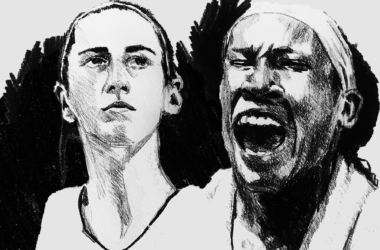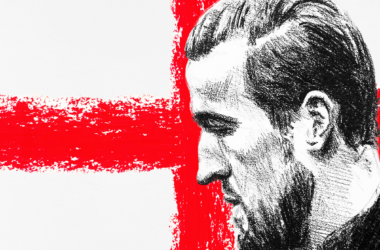 Cole Burston / Daily Gleaner
Cole Burston / Daily GleanerOn March 3, 1875, the first ever organized hockey game took place at Montreal’s Victoria Skating Rink between various McGill students. The game introduced the use of a puck instead of a ball with the hopes of preventing any crowd members from being hit, since a puck is harder to lift. In 1877, the first ice hockey club, the McGill University Hockey Club, was born.
Now, 137 years after the birth of hockey, and 136 years after the formation of the McGill Hockey Club, the McGill Redmen have won their first ever CIS championship. The historic win came after a thrilling overtime goal scored by team captain Evan Vossen, capping a season to remember for the Redmen.
The road to the championship began with the second-seeded Redmen facing the fifth-seeded Moncton Aigles Bleus. The Redmen came out of the locker room with all cylinders firing, and Moncton was forced to take two penalties only three minutes in, giving McGill two minutes of five-on-three play. McGill took advantage of the golden opportunity, as Francis Verreault-Paul and Alexandre Picard-Hooper both scored powerplay goals to give the Redmen a 2-0 lead just five minutes in the game. Nicolas Biniek added another goal for McGill, giving the Redmen a 3-1 lead after one period.
The second and third frames were also dominated by McGill. In the second, Verreault-Paul scored his second of the night, and Andrew Wright added another, extending McGill’s lead to 5-1.
Moncton answered in the third, scoring twice and applying pressure on McGill goaltender Hubert Morin. It was too little, too late, however, and McGill came away with the 6-3 win.
McGill moved on to play the Saskatchewan Huskies in their second game of the tournament. The Huskies lost to the Aigles Bleus 5-1 the night before, and had to defeat McGill by three goals or more in order to qualify for the gold medal game.
Fortunately for McGill, Morin was just solid enough in net, and McGill lost the game 4-3. Thanks to goal differential tiebreaking procedure, the Redmen advanced to their second consecutive CIS championship finals.
After being torn apart by UNB 4-0 in last year’s finals, the Redmen were determined not to allow history to repeat itself, learning from their past failure. Facing a Western team who had upset UNB just the night before, the finals were a rematch of the Queen’s Cup just two weeks ago, in which McGill prevailed handily 4-1.
Unfortunately, the Redmen took a penalty for too many men at 7:21 into the game, giving Western the opportunity to take the early lead. Western’s leading scorer Keaton Turkiewicz took advantage and buried the opening goal. McGill responded exactly seven minutes later with Benoit Lévesque’s first goal of the tournament.
The tides were reversed in the second period, as Lévesque stayed hot and scored his second of the game 48 seconds in. But, the Mustangs charged back, and Kevin Baker tied the game at two. McGill once again halted any potential momentum by Western, with Nicholas Biniek scoring his third of the tournament, giving McGill a one-goal lead heading into the second intermission.
The third period was characterized by a complete reversal of roles, as Western dominated the play while Verreault-Paul received a five-minute major and a game misconduct after charging Western goaltender Josh Unice. The Mustangs took advantage, and Turkiewicz scored his second powerplay goal. The game was headed into sudden death overtime.
Sudden death overtime is polarizing. It has the potential to be one of the worst moments for any athlete, or one of the most rewarding and exhilarating. The Redmen understood that to win their first national title, one member of the team would have to step up.
Exactly six minutes into overtime, McGill captain Evan Voss broke away from Western’s defenders and did exactly what the 1875 hockey teams hoped the puck would never do: he lifted the puck over Unice’s shoulder and scored the winning goal for the championship-starved team. Vossen, a senior playing his last game with the team, had scored not only the biggest goal of his career, but the greatest goal in McGill men’s hockey history.








